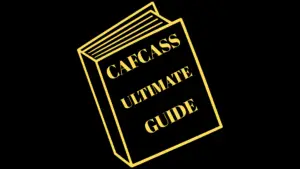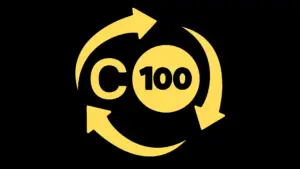Served with an ‘Ex Parte’ Non-Molestation Order? A Father’s Guide to the First 48 Hours
“Last Updated” Date: Sunday, 12 October 2025
It’s the moment your world turns upside down. A process server hands you a thick envelope, and suddenly you’re holding a Non-Molestation Order—one that was granted “ex parte,” or without you even being there. There’s a gut-wrenching mix of confusion, anger, and fear, and you may feel that you have been subjected to significant emotional discomfort. You haven’t been arrested or charged, yet you’re now bound by a strict court injunction. The shock can be paralysing, but what you do in the next 48 hours is absolutely critical.
The stakes could not be higher. A breach of this order, intentional or not, is a criminal offence that can lead to your arrest. This is not the time for panic or rash decisions. This guide is your emergency plan. It provides a clear, strategic path to navigate this initial crisis, built on experience of helping hundreds of fathers in your exact position. We will show you how to stay safe, avoid critical errors, and begin preparing a powerful response for court.
Key Takeaways
- Read Every Word Immediately: You are legally bound by every term of the order the second you are served. Ignorance is not a defence. You must know exactly what you are forbidden from doing.
- Zero Contact is Non-Negotiable: Do not call, text, email, or contact your ex-partner directly or indirectly. A simple “what’s this about?” message is a breach and can lead to your arrest.
- The ‘Return Hearing’ is Your First Chance: Your paperwork will list a “return hearing date.” Diarise this immediately. This is your first opportunity to respond to the allegations in court. You must attend.
- Get Expert Advice Urgently: This is a complex legal situation with severe consequences. Use the short time before your hearing to get specialist advice to prepare a factual, calm, and effective response.
Want one-to-one guidance on this? Message us now on WhatsApp.
Jump To
- A Deep Dive: The Meaning of ‘Ex Parte’ and ‘Power of Arrest’
- Your Strategic Path: An Emergency 48-Hour Checklist
- At a Glance: ‘Ex Parte’ Order vs. ‘On Notice’ Order
- The Biggest Mistakes to Avoid in the First 48 Hours
- FAQs: Your Urgent Questions Answered
As a consultant who has helped many fathers navigate this initial panic, I can tell you that a calm, methodical approach is your greatest asset. Put the emotional reaction aside for a moment and focus on these practical, defensive steps. The court is watching how you respond from the second you are served.
A Deep Dive: The Meaning of ‘Ex Parte’ and ‘Power of Arrest’
‘Ex Parte’ (Without Notice) Order
An ‘ex parte’ order is a temporary court decision made after hearing from only one party. Under Section 45 of the Family Law Act 1996, a judge can grant this if they believe there is an immediate risk of significant harm to the applicant or a child, making it necessary to act without waiting to hear your side of the story.
What This Means For You: This does NOT mean you are guilty. It means the allegations presented were serious enough for a judge to put immediate, temporary protective measures in place until a full hearing (the “return hearing”) can be arranged where both sides are heard. Until then, you must follow the order to the letter, no matter how unfair you feel it is.
Power of Arrest
A “power of arrest” is a standard attachment to a non-molestation order. It means that if a police officer has reasonable grounds to suspect you have breached the order, they can arrest you immediately without a warrant. As per official Judiciary practice guidance, this makes any breach a criminal matter.
What This Means For You: This is what gives the order its teeth. A breach is not a civil dispute; it is a criminal offence. The police will not debate the fairness of the order with you; their only job is to enforce it.
Example: Snippet from a Father’s Urgent Log Entry
12th October 2025, 18:30: Served with papers by a process server at my home address. Papers are a Non-Molestation Order (ex parte).
18:45: Read the order. Prohibitions include no direct/indirect contact with [Ex-Partner’s Name] and not attending [Street Name]. Return hearing date is 25th October 2025 at 10:00 am at the Central Family Court. Diarised immediately.
19:00: Blocked [Ex-Partner’s Name] on phone, WhatsApp, and all social media. Emailed my mother and brother to inform them of the order and instructed them not to contact her on my behalf under any circumstances.
This log confirms my immediate understanding of and compliance with the court’s order.
A Real Life Scenario: David was served with an order that forbade him from contacting his ex-partner “directly or indirectly.” He was upset and wanted to explain himself. He sent her a long, apologetic email. He wasn’t threatening, but the email was a clear breach of the “no direct contact” rule. His ex-partner called the police, showed them the email, and David was arrested later that day. He spent a night in the cells and was eventually given a criminal caution, which now shows on his enhanced DBS check.
Your Strategic Path: An Emergency 48-Hour Checklist
The moment you are served, your actions are under a microscope. Follow these steps methodically to protect your position and prepare for what comes next.
- Read and Understand the Order: Read every single page, especially the list of restrictions (the “injunctions”). Are there exclusion zones? Rules about communication? Understand exactly what you are forbidden from doing.
- Diarise the Return Hearing Date: Find the date, time, and location of your next court hearing (the “return hearing”). Put it in your calendar immediately. You must attend this.
- Cease All Contact: Block your ex-partner’s number on your phone. Do not call, text, email, or use third parties to pass messages. Mute or block them on all social media platforms.
- Get Strategic Advice: Contact a specialist who understands non-molestation orders. The court expects you to respond, and preparing that response needs to start now.
At a Glance: ‘Ex Parte’ Order vs. ‘On Notice’ Order
Understanding the difference helps you see why you’ve been served this way, and what the next steps look like.
| Feature | Ex Parte (Without Notice) | On Notice (With Notice) |
|---|---|---|
| Goal | ✅ To provide immediate, urgent protection based on one-sided evidence. | ❌ To make a considered judgment after hearing from both parties. |
| When to Use It | When the applicant alleges an immediate risk of significant harm. | The standard and preferred method for most court applications. |
| Example | An order granted today that you only find out about when it’s served on you. | You receive an application with a hearing date in several weeks, giving you time to prepare a response. |
| Legal Test | Is the risk so great that the court must act without hearing from the respondent? | The court decides on the balance of probabilities after weighing all evidence. |
| Outcome | ✅ A temporary order is made, pending a “return hearing” where you can respond. | ❌ A final order is made for a set period (e.g., 12 months). |
Avoid costly mistakes — chat with us today and get practical, fixed-fee support.
The Biggest Mistakes to Avoid in the First 48 Hours
When panic sets in, fathers often make errors that feel small but have devastating consequences. From my experience helping dads through this crisis, these are the most damaging mistakes you must avoid at all costs.
Common Pitfalls:
- Contacting Your Ex-Partner: Why this is a mistake: This is the number one error. Do not do it under any circumstances. A text to “sort it out” is a breach and can lead to your arrest.
- Posting on Social Media: Why this is a mistake: Do not post anything about your ex, your children, or your case. A vague, angry post can be interpreted as indirect harassment and a breach.
- Breaching the Order to See Your Children: Why this is a mistake: If your ex is using the order to stop contact, it will not only lead to your arrest but will be used as evidence that you cannot follow court orders, making it much harder to secure future contact.
FAQs: Your Urgent Questions Answered
When you’ve just been served, your mind is racing. Here are the immediate answers you need.
What does “ex parte” or “without notice” actually mean?
It means the court has made a temporary order based on hearing only one side of the story (your ex-partner’s) because a judge felt there was an immediate risk of harm that justified not waiting for you to be present.
Am I in trouble with the police? Is this a criminal record?
No. Being served with a non-molestation order is a family court matter and does not give you a criminal record. However, if you breach the order, that *is* a criminal offence and can lead to a criminal record.
What is a “return hearing date” and what happens there?
This is the date listed in your paperwork for your first appearance in court. It is your opportunity to tell the judge whether you agree with the allegations and the order, or whether you wish to challenge it. You can also explore offering an undertaking as an alternative.
What is the single most important thing I must do right now?
Read the order carefully to understand the rules you must follow, and then cease all contact with your ex-partner. This protects you from an immediate breach.
How do I see my children after being served this order?
The order should state how child contact is affected. Often, it allows for contact as agreed or as set out in a separate Child Arrangements Order. If it prohibits all contact, you must obey it and address the issue of contact at the return hearing.
Do I have to move out of my house immediately?
Only if the order is also an “occupation order” that specifically excludes you from the family home. A non-molestation order on its own does not remove you from your property. Read the papers carefully.
Should I get legal advice or can I handle this myself?
Given the serious consequences of a breach and the impact on child contact, getting expert, strategic advice immediately is highly recommended. An experienced McKenzie Friend or solicitor can help you prepare your response for the crucial first hearing, including whether to defend false allegations or seek to discharge the order later.
Take Control in the First 48 Hours
At Dads Consultancy, we provide the specialised, expert support to move you from crisis to control. We can help you with:
- Making Your Application (C100)
- Handling the CAFCASS Call
- Navigating Child Arrangements Orders
- McKenzie Friend Support
- MIAM/Mediation Guidance
- Responding to Non-Molestation Orders
- Drafting Powerful Position Statements
- Navigating Section 7 Reports
The decisions you make in the next 48 hours will set the tone for the rest of your case. An impulsive, emotional reaction can cause irreparable damage. WhatsApp us today for an urgent, strategic consultation, and let’s build a clear, calm plan to respond.
🧠 Insider Insight: Lach, our founder, is a former Cafcass and Children’s Services Social Worker. He has been on the inside of the family court system, writing the very reports that influence court outcomes. Now he uses that insider knowledge to help dads navigate the process effectively. Learn more about Lach’s background.




